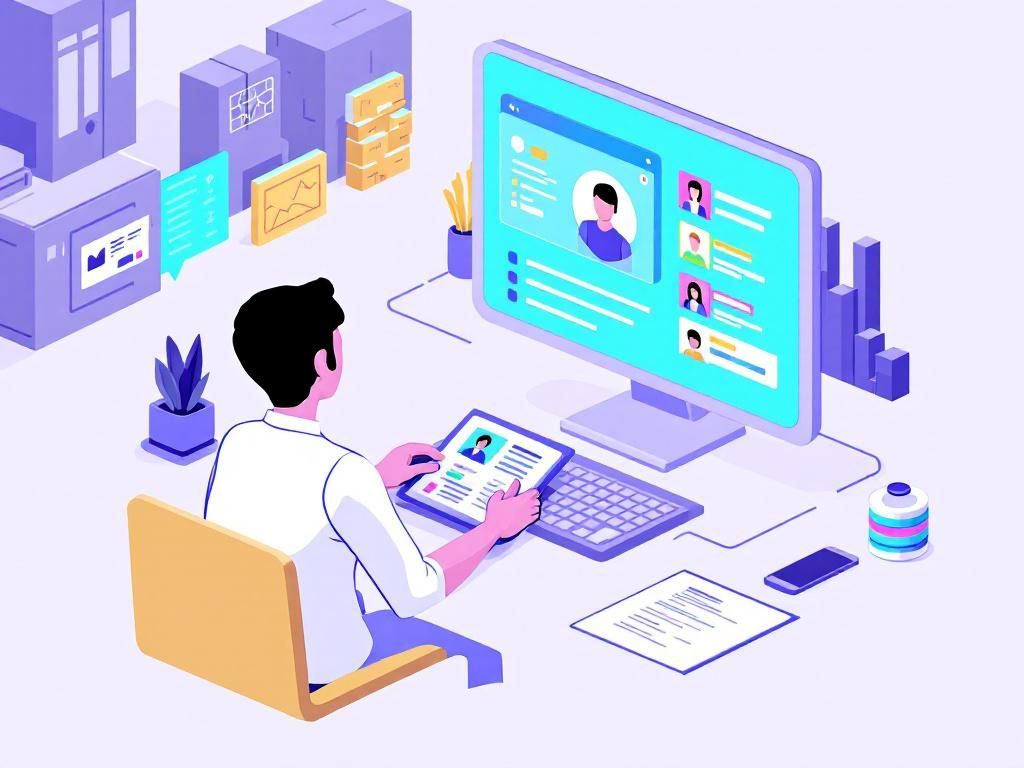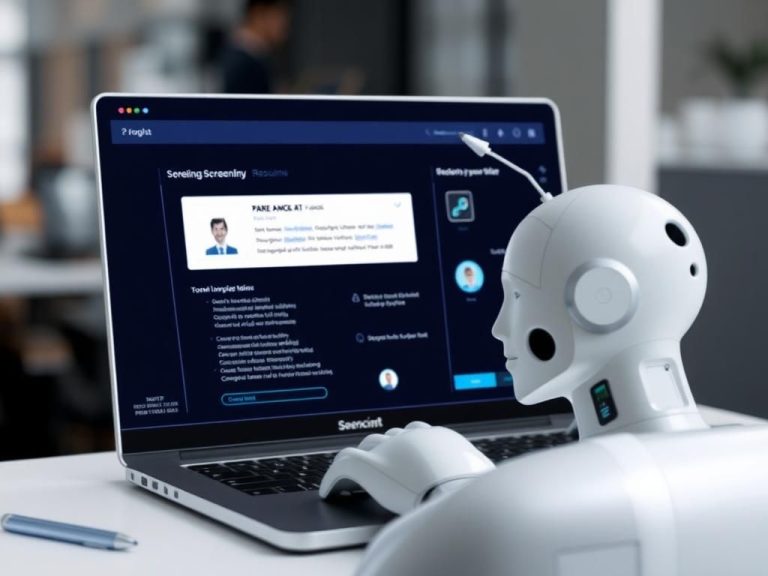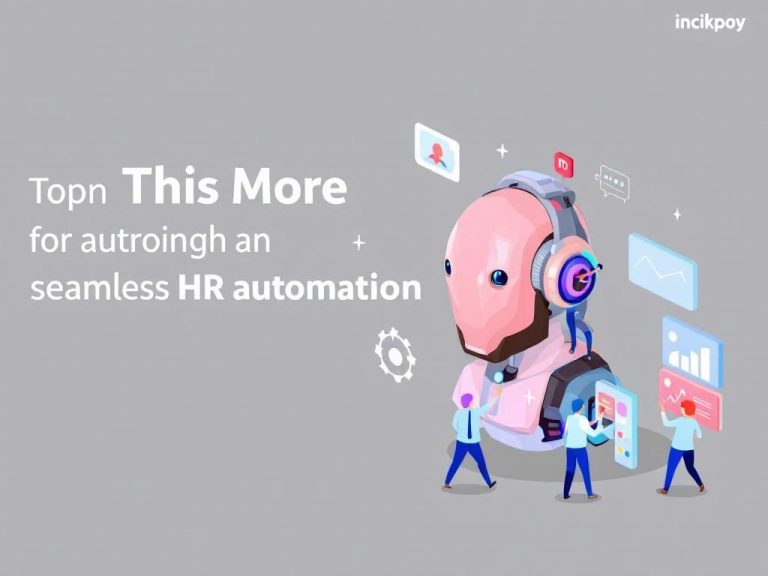In today’s competitive job market, finding the right talent can be a daunting task for hiring managers. With an overwhelming number of applications to sift through, it’s easy to overlook qualified candidates. Fortunately, advances in technology have introduced innovative solutions to streamline the hiring process, and AI resume screening is at the forefront. This intelligent technology not only reduces time-consuming manual tasks but also enhances the quality of candidate selection. In this article, we’ll explore how AI resume screening is transforming the landscape of recruitment.
The Rise of AI in Recruitment
The application of artificial intelligence in recruitment is not just a trend; it’s becoming a standard practice. Companies are increasingly relying on AI tools to automate various aspects of the hiring process. Here are some key factors contributing to the rise of AI in recruitment:
- Efficiency: AI can analyze hundreds of resumes in a fraction of the time it takes a human recruiter.
- Consistency: AI algorithms apply the same criteria to every resume, reducing biases and ensuring a uniform selection process.
- Data-Driven Decisions: AI tools gather and analyze data to provide insights into candidate suitability based on current market trends.
How AI Resume Screening Works
AI resume screening tools utilize natural language processing (NLP) and machine learning algorithms to evaluate resumes. Here’s a breakdown of how the process works:
- Data Extraction: The AI scans resumes and extracts relevant information such as skills, education, work experience, and certifications.
- Criteria Matching: The extracted data is compared against predefined job descriptions, looking for keywords and phrases that match the requirements.
- Ranking Candidates: AI assigns scores to candidates based on how closely their qualifications align with the job criteria, creating a ranked list.
- Continuous Learning: Over time, the AI learns which candidate attributes lead to successful hires, refining its algorithms for better future performance.
Benefits of AI Resume Screening
Incorporating AI into the resume screening process offers numerous advantages:
1. Time Savings
Recruiters often spend hours reviewing resumes. AI tools can significantly reduce this time, allowing HR teams to focus on engaging with top candidates.
2. Enhanced Candidate Quality
AI’s ability to analyze vast amounts of data ensures that the most qualified candidates rise to the top, improving the overall quality of the talent pool.
3. Reduced Bias
With the right programming, AI can help eliminate unconscious bias by focusing solely on qualifications rather than demographic factors.
4. Improved Candidate Experience
By speeding up the hiring process, candidates receive feedback faster, leading to a better overall experience.
Challenges and Considerations
While AI resume screening offers numerous benefits, it’s important to consider the challenges that come with its implementation:
1. Data Quality
The effectiveness of AI is highly dependent on the quality of the data it receives. Poorly formatted resumes or inconsistent language can lead to inaccurate assessments.
2. Security and Privacy
Handling sensitive applicant information raises concerns about data privacy and security. Companies must ensure compliance with regulations, such as GDPR.
3. Over-reliance on Technology
While AI is a powerful tool, it’s essential for recruiters to remain engaged in the hiring process to maintain a human touch.
Best Practices for Implementing AI Resume Screening
To maximize the benefits of AI resume screening, companies should follow these best practices:
| Best Practice | Description |
|---|---|
| Define Clear Criteria | Establish specific qualifications and characteristics for the role to guide the AI evaluation process. |
| Regularly Update Algorithms | Continuously refine algorithms based on candidate performance and feedback from hiring managers. |
| Incorporate Human Review | Ensure that a human recruiter reviews AI-generated shortlists to add context and insight. |
| Assess Data Security | Implement robust security measures to protect candidate data and comply with privacy regulations. |
Case Studies: Success Stories
Several organizations have successfully integrated AI resume screening into their hiring processes, yielding impressive results:
1. Unilever
Unilever implemented an AI-driven approach to filter candidates for their graduate recruitment programs. By using gamified assessments followed by AI resume screening, they reduced the time spent on selection from four months to just two weeks.
2. Hilton
Hilton adopted AI technology to streamline their recruitment process, leading to a significant increase in candidate engagement rates and a 25% reduction in time-to-hire.
3. Johnson & Johnson
By utilizing AI to enhance their recruiting strategy, Johnson & Johnson reported a more diverse candidate pool and improved hiring outcomes.
The Future of AI in Hiring
Looking ahead, the role of AI in recruitment will likely continue to expand. Trends to watch for include:
- Integration with Other HR Technologies: AI resume screening may increasingly integrate with applicant tracking systems (ATS) and other HR tools to create a seamless hiring experience.
- Predictive Analytics: Future AI systems will likely incorporate predictive analytics to forecast candidate success based on historical hiring data.
- Personalized Candidate Engagement: AI could play a role in creating tailored communication strategies to engage candidates throughout the hiring process.
Conclusion
AI resume screening is revolutionizing the recruitment process by enhancing efficiency and improving the quality of hires. While challenges exist, strategic implementation and adherence to best practices can mitigate risks and maximize benefits. As technology continues to evolve, organizations that leverage AI responsibly will be well-positioned to attract top talent in an increasingly competitive job market.
FAQ
What is AI resume screening?
AI resume screening is a technology that uses artificial intelligence algorithms to analyze resumes, identify qualified candidates, and streamline the hiring process.
How does AI resume screening improve the hiring process?
AI resume screening improves the hiring process by automating the initial resume review, reducing time spent on manual assessments, and ensuring a more objective evaluation of candidates.
What are the benefits of using AI for resume screening?
The benefits of using AI for resume screening include increased efficiency, reduced bias, enhanced candidate matching, and the ability to handle a larger volume of applications.
Is AI resume screening suitable for all types of companies?
Yes, AI resume screening can be beneficial for companies of all sizes and industries, particularly those experiencing high volumes of applications.
Can AI resume screening eliminate human bias?
While AI resume screening can help reduce human bias by standardizing evaluations, it is essential to regularly monitor and adjust algorithms to ensure fairness and inclusivity.
How can I implement AI resume screening in my hiring process?
To implement AI resume screening, research and choose a suitable software solution, integrate it with your existing hiring tools, and train your HR team on its use and best practices.




